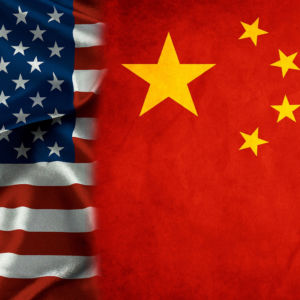What’s the connection between the “cancel culture” and China’s global influence? They are logically equivalent issues.
Both are products of a spectacular engagement that started two decades ago: globalization and the internet, respectively. Now, like a curse of the engagement, both are testing civil liberties in America.
There’s no shortage of arguments that the United States should decouple from China or that “cancellation” is the new way to serve justice. But as this unlikely analogy will make clear, no such simplistic solution is equal to America’s challenges.
To use the “cancel-era” language, the Chinese government is “woke.” Any Western company on the wrong side of China’s political correctness risks being canceled from its massive economy.
Remember last year’s NBA controversy that originated from a tweet by Houston Rockets’ general manager Daryl Morey in support of Hong Kong? Rockets games are still blocked in China this year, costing the NBA hundreds of millions in lost revenues.
When corporations fight back against the Chinese cancellation, which is what the Comedy Central show “South Park” did last year, the result is — you got it — more cancellation.
Just like companies fear losing their China business, today’s political intolerance makes Americans from the left and right choose to keep their mouths shut.
The calculation behind the self-censorship is all too reasonable: In the market for ideas, when the demand for your product (your opinions) is so sensitive — it might mean getting a few “likes,” losing your audience, or seeing your livelihood destroyed — it’s only rational to tread lightly with your supply.
You might even want to express views you don’t hold just because other people do. Tech companies like Google and Facebook tried to do essentially that when they developed censorship tools for China in order to get back to its market.
The irony is, both the China challenge and the free speech challenge are an unintended consequence of a rosy engagement that began at the turn of the century.
In 2000, when making the case for China’s accession to the World Trade Organization, President Bill Clinton envisioned that integrating China into the global economy would not only bring opportunities to American businesses and consumers but also encourage freedom for the Chinese people.
How very true — for half of it. The widely held enthusiasm for free speech at the dawn of the internet was no different. In 1995, UCLA law professor Eugene Volokh famously predicted that the Web would make speech so cheap that a lot of content would be made available to people everywhere.
No one could agree more, except that cheaper speech doesn’t necessarily mean freer speech.
Here’s where the romance broke down: These engagements have not only opened markets but also made the other side of the market more elastic. Two decades of inclusion in globalization has availed China of its own version of almost everything popular in our lives — Baidu for Google, Weibo for Twitter, Youku for YouTube and many more.
The existence of these replicas means the Chinese cancellation of Western companies, should they be politically incorrect, is a credible threat, because Chinese consumers do have alternatives that are almost as good.
The internet that brings people together also makes speech mobs easier to form. In the age of too much information, who has the time to fact-check everything?
When you walk down a street filled with unfamiliar restaurants, you pick the one with the longest line. So when you feel the urge to react to other people’s opinions, why not pile on whoever’s voice is the loudest? (Most likely, it’s the mob’s.) The Web’s anonymity doesn’t help either.
What should we do about the engagement’s curse?
Some might think the Chinese threats should be answered with a U.S.-China decoupling. But should they extend the same logic to arguing that the Internet should be shut down?
It might seem okay when the “cancel culture” gets ahead of due process and justice. But is it equally acceptable if China continues to enforce its moral code on American businesses and, by extension, the American people?
There are no easy solutions to these problems, which is why civil conversations are badly needed in our society. But realizing the logical equivalence between the two can at least help us recognize what’s not the right answer.

